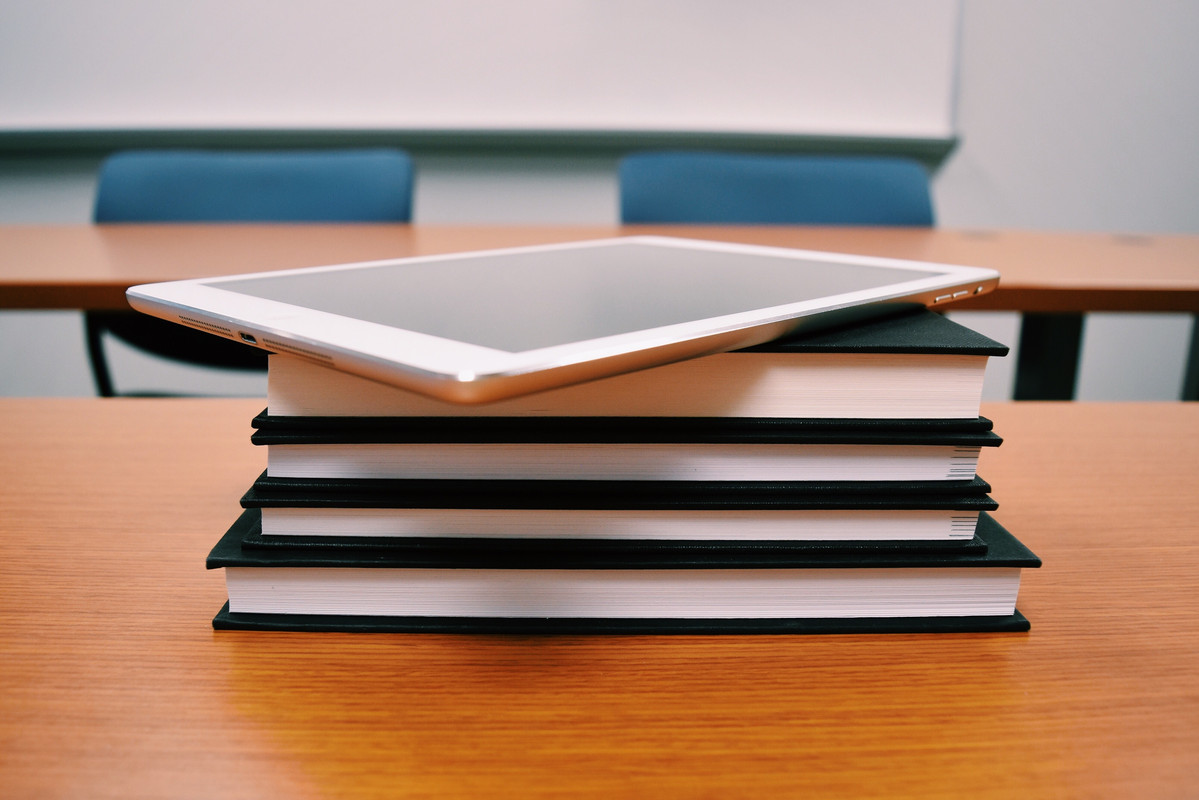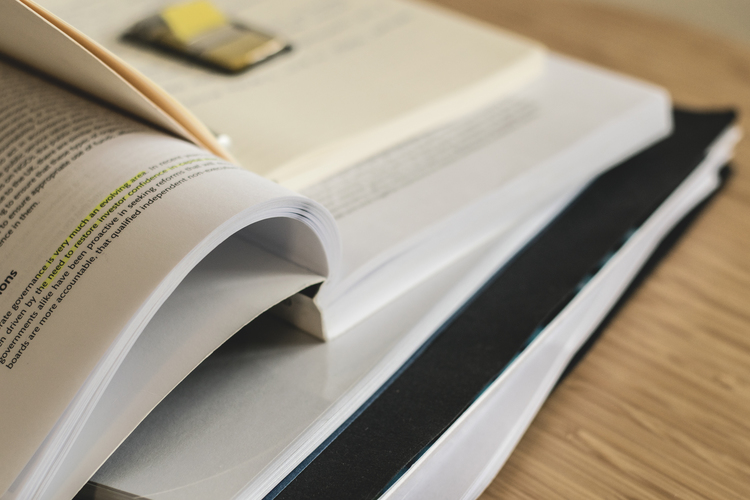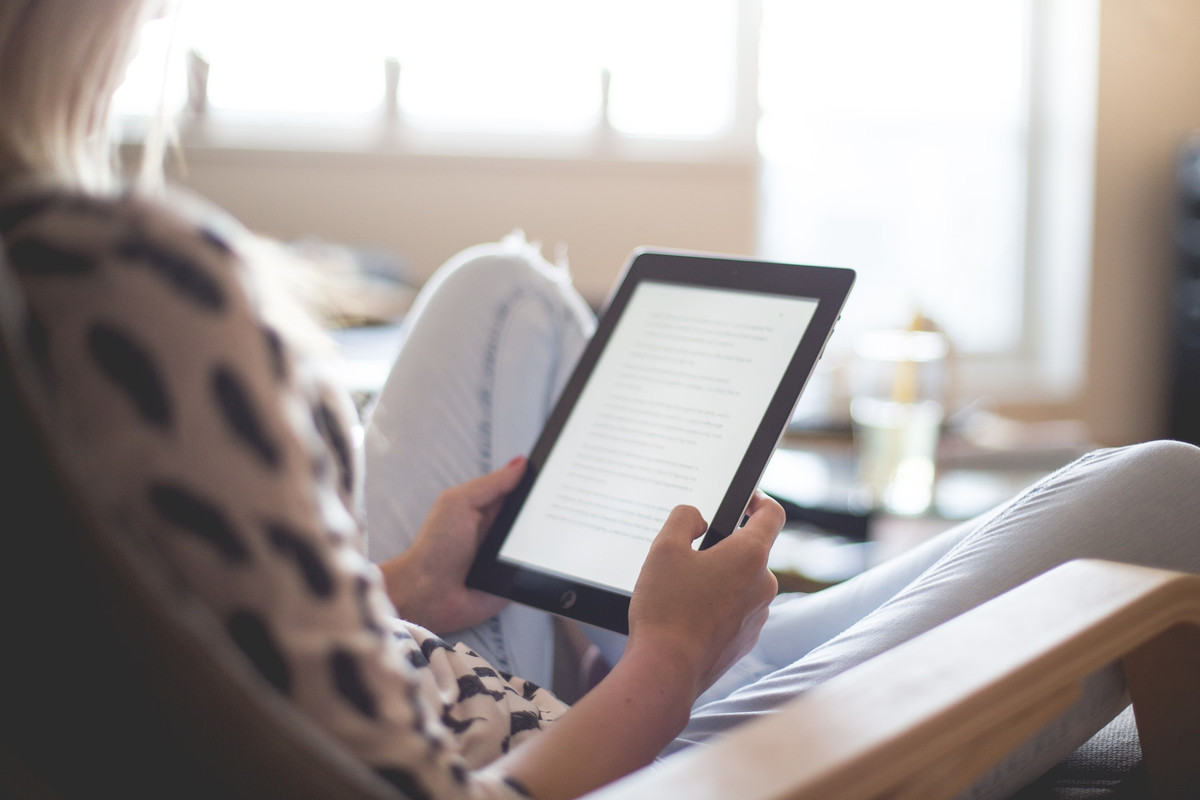Textbook vs. E-Book: What's the Better Choice?
Upon walking into a new class for the first time, there are a few expectations that you anticipate: new friends, new curriculum, and the dreaded new textbooks. Typically, when you start a new course, you get a syllabus or course outline from your professor that details the projects, class schedule, class standards/expectations, and required textbooks for the class. For many students (myself included), reading over the book list for the semester can be discouraging, as the prices for textbooks are astronomically high and typically out of budget.
Despite this, most college students feel that they do not have a choice and in many cases, end up spending large amounts of money on textbooks that they may or may not need for a few short months. Students are straying away from this necessary evil, however. According to Libby Nelson of Vox, College Board estimates that students will budget $1,200 per year for books and supplies. Despite this, Nelson notes that student spending is not increasing at the same rate as pricing. Rather, a majority of students spend on average $638 per year on course materials, nearly half the College Board estimate.
Part of the struggle of purchasing books for classes is trying to decide on whether to get a physical textbook or an e-book. Both book formats have their advantages and disadvantages, but the type of learner you are, the kind of budget you have, the technology that you may/may not have, and the type of instructor you have can help you sway towards one option or the other. With the advancement of technology, people have steadily been relying on e-books over traditional books as a way to read and process information.
According to a Pew Research Center poll cited by Suren Ramasubbu of the Huffington Post, “27% of Americans read e-books in 2015, and this number is steadily rising. Some of the reasons for the popularity of e-books over paper books include space savings, cost-cutting, and reading ease.” While some people, younger students in particular, have ditched traditional textbooks, others have stuck with regular books for other reasons, which can include absorption of information, impact on sleep cycle/schedules, and excessive distractions.
In an article by Michael S. Rosenwald of the Washington Post, he claims that “Textbook makers, bookstore owners and college student surveys all say millennials still strongly prefer print for pleasure and learning, a bias that surprises reading experts given the same group’s proclivity to consume most other content digitally.” Furthermore, Rosenwald references a study conducted by University of Washington regarding digital textbooks, in which the researchers found that “a quarter of students still bought print versions of e-textbooks that they were given for free.”
With the fall semester quickly approaching, I’m sure you are scrambling and struggling to figure out which route to go when it comes to your course textbooks. In some cases, it may just be easier to purchase a physical copy of a book from your school bookstore, while in other cases, you may want to buy and download a digital copy of a book instead. If you’re finding yourself in this kind of pickle, don’t worry, these are tough decisions! Are you a college student about to start school in a couple weeks? Having a hard time deciding what kind of book to get for classes? Unsure of the benefits and disadvantages of each? Check out my comprehensive analysis of both traditional textbooks and e-books, and your reasons to and to not side with each option below!

Tips to Know Beforehand
Before diving into the pros and cons of each textbook format, it is to go over a few necessary steps that can help you eradicate this difficult process altogether. Do the following before even getting a textbook, physical or digital.
Feel Out Your Class: Before you even consider handing over $100 to your college bookstore for textbooks or getting an e-book, get a decent grasp of class expectations, get to know your professor, and be active and attentive in your class for the first week or so.
Doing this will help you figure out if the course is one you plan on staying in or one you are going to drop the second you get a chance. It is so important to do this because ultimately, you don’t want to buy a textbook right away just to end up dropping the course a few days later. Do yourself a favor and take my advice on this one- you won’t regret it!
Avoid the Ghost Book: You may have read this second bullet and thought to yourself, “what is a ghost book?” What I mean by this is, there is sometimes a phenomenon that occurs in college classes where professors require you to purchase books but throughout the entirety of the semester, will neither use it or even reference it once -- hence, “ghost book” get it?
It’s not bad that some professors don’t use a textbook; some may work using videos and online articles while others use PowerPoint presentations -- but this shouldn’t mean that you have to buy a textbook they require if it will not be used. If you have concerns, pay attention to how your professor teaches, what material he/she uses, and approach them on what materials will be needed to the class to get an absolute answer. Another helpful tip is to read RateMyProfessor reviews or student classifieds pages online about your course/professor, since students can provide useful information about teaching style, textbook usage, etc.
Consider Reselling: After your semester is completed, you do not have to eat all the money you dropped on those textbooks, instead you can get rid of your used book and get some quick money! If you were to purchase an e-book that is just a few dollars cheaper than a physical copy, you may want to entertain the idea getting a hard copy instead and reselling your traditional textbook at the end of the semester.
When you buy a book digitally, obviously, your options are just about limited when it comes to getting your money back. However, if you have a physical book, there is always going to be a student that wants or needs a copy of that book for their upcoming course. With that being said, at the end of your semester, you can make all of your money back and essentially get your book for free.

Textbooks
Pros:
-
Availability: With a physical textbook, you can rest assured that you will be able to find a copy used or new just about everywhere. There’s a large chance that your school library has a copy, which in that case, you can check it out and not have to worry about making a purchase. If you can’t find a copy in the library, you always have the option to rent/buy a used or new copy from online marketplaces like Amazon, eBay and Chegg. Using Textsurf, you could save some serious money!
-
Absorption of Information: There have been several studies concerning the difference in information absorption between textbooks and e-books. Though there have been some conflicting conclusions, most researchers agree that having a physical copy of a book increases your ability to absorb and retain information. In a study from the University of Washington referenced earlier, researcher Alex Thayer notes some of the difficulties students experience when using e-books, stating, “readers don't allow for "cognitive mapping," the process of using cues to remember where you saw the information in the first place. Navigation and search functions are also notoriously poor on most e-readers.”
-
Ease of Use: One of the reasons why physical textbooks are still so popular is that they are simple and easy to use. With the grand majority of us reading books from early ages, we all understand how to use them and thus have acquired techniques that help us best retain the most from them. Physical books give you the opportunity to write notes in relevant margins, highlight key material, and keep important papers/worksheets in between the pages.
Cons:
-
Costly: It is no secret that the cost of college textbooks is astronomically high. With the average cost of college textbooks rising four times faster than the rate of inflation over the past decade, students have sought alternatives to buying a physical textbook for classes. Textbook prices usually range between $40 and $200, however, e-books can be significantly cheaper and sometimes free if you look hard enough for a PDF file online!
-
Portability: We all know the struggle of having to carry around heavy books in our hands or inside our backpacks. Without even noticing, we can sometimes miss the adverse effects of carrying such books can have on our bodies. Stephanie Springer of WALB News cited a University of California study which found that “a typical backpack load places a heavy compression on the discs of the spine and increases the curvature of the lower spine”, with the doctors stating that “heavy backpacks could cause permanent damage.”
-
Stock Shortages: Though physical books are available just about everywhere, that doesn’t mean that you can always get your hands on one. Sometimes a fellow peer may have checked out your book at the library already, or maybe your book is out of stock on Amazon. This is the reality of having a physical book- consider this when trying to decide between the two formats.

E-Books
Pros:
-
Less Expensive: Most of the time when you’re searching for books, you’ll come to find that e-books will be cheaper than a physical copy of a book, whether it’s a rental or a full purchase. This isn’t the case all the time, so it’s really important to search different textbook sites to determine the best bang for your buck.
-
Search/Find: With a tablet or laptop, it’s a lot easier to search for and find information just by typing in a keyword or being able to get to a section in the book with the snap of a finger. With a physical textbook, you have to read line after line to find the information you’re looking for. This isn’t bad all the time, but if you’re time constricted and needing to find what you’re looking for fast, e-books are great.
-
Portability: We are fully aware of the burden physical textbooks have both on our wallets and on our physical bodies. With a tablet or laptop, you can have multiple books in the palm of your hand and avoid the back problems in the process.
Cons:
-
Requires Electronic Device: This is an obvious first negative, however, it is important to note. Electronic devices like laptops, tablets, and e-readers are very expensive, along the lines of a couple hundred dollars. If you don’t have the money to get an electronic device for school, then it goes without saying that e-books are out of the picture.
-
Absorption of Information: In a recent experiment conducted in Norway, researchers found that reading on paper can boost information retention rates. Amy Kraft of CBS references this study and summarizes the findings stating, “[in the experiment] people were given a short story to read either on a Kindle or in a paperback book; when they were quizzed later, those who read the paperback were more likely to remember plot points in the right order.”
-
Distracting: Because electronic devices have apps like Facebook, Twitter, Instagram, etc. on them, it is very easy to become distracted. All it takes is closing your reading application and switching to a new one, and if you’re in class, there’s a big chance that your professor won’t notice (unless they call on you). This can make class lectures less productive and effective, which leaves you clueless and possibly failing the course when everything is said and done.
-
Sleep Patterns: Constantly staring at a phone, tablet, or computer screen has adverse effects on the human mind and body. Extensive exposure to blue light or LED lights can contribute to visual fatigue, a condition marked by tired, itching, burning eyes, according to Amy Kraft of CBS. To back up those claims further, Kraft cites the expertise of Dr. Margaret K. Merga, a reading and education specialist, who told CBS, “Artificial light exposure from light-emitting e-readers may interfere with users' ability to sleep, ultimately leading to adverse impacts on health."
Though deciding on what kind of format you want to go with for your college textbooks can be overwhelming, the decision ultimately comes down to your preferences. Some people prefer a physical copy that they can write and highlight in, while also possibly entertaining the idea of making their money back. Others like the cost-effectiveness and convenience of e-books on a tablet. Remember to be smart about your shopping and don’t be afraid to mix and match if you can! As always, good luck!


